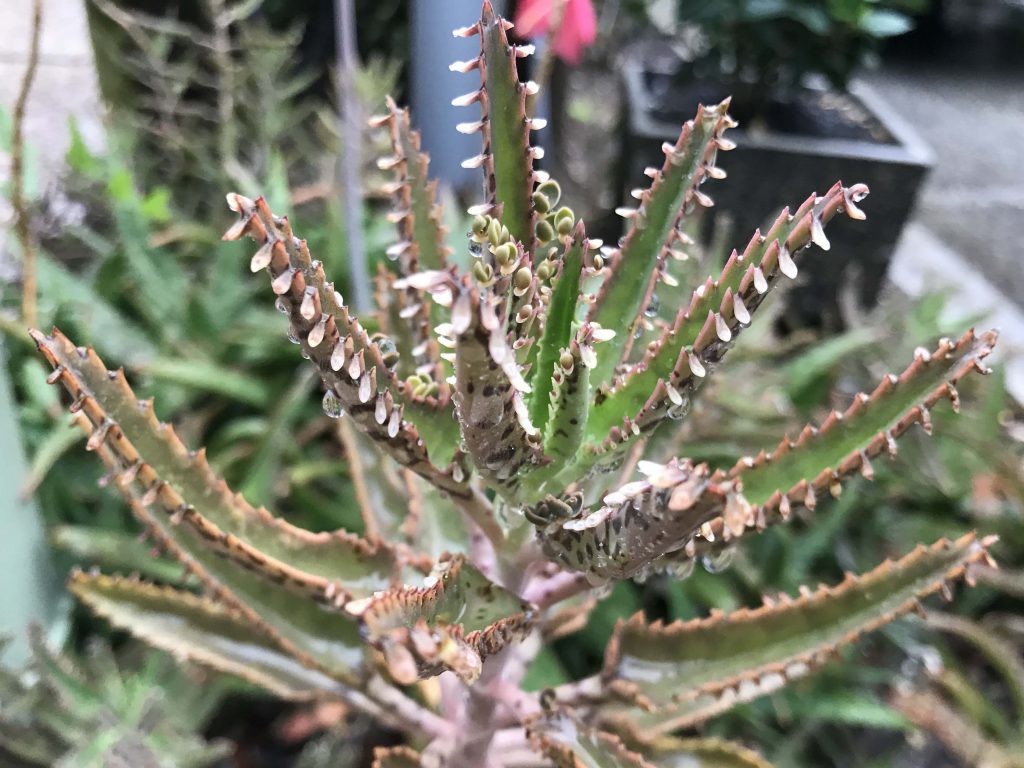Mother of Millions (Kalanchoe x houghtonii)
The Mother of Millions gets its name because of the hundreds of offspring it produces and spreads across the landscape. This specific plant has been problematic for Nassau County’s coastal ecosystems by displacing the natural plant material along the coastal dunes. You can easily recognize Mother of Millions because of its succulent appearance. It has succulent, green leaves with purple or black spots on the undersides of the leaves.
When looking carefully at the plant, you may notice all the babies growing along the edge of the Mother of Millions’ leaves. These are called “pups”. The pups grow along the parent plant’s leaf margins until they drop onto the ground and begin to root into the soil. You may also recognize the Mother of Millions because of its tall, upright, orange/red bell-shaped flowers. Avoid purchasing these plants in the big box store and remove any from your landscape by pulling them out.

Control
Preventative
Avoid purchasing or trading Mother of Millions from any nursery or vendor.
Mechanical
Physically removing Mother of Millions will be the most effective control measure. Disposing all parts of the plant into trash bags is critical to its control. Do not place the Kalanchoe into your compost piles or yard waste. Therefore, you should put any removed plants into trash receptacles.
Biological
There is no biological control from this invasive species.
Chemical
Cultural and mechanical controls should help reduce the spread of the Mother of Millions. If not effective, select herbicides labeled for their use. Always remember, the label is the law.
Conclusions
Mother of Millions spreads quickly, especially within Nassau County’s coastal community. Therefore, if you or someone you know is having issues managing this invasive or any other invasive plants within your landscapes, reach out to your county extension office for more information. The invasion of the landscape snatchers has begun, but we can stop it!
More Information:
Blog Series
Like what you are reading? Therefore, check out all the published blogs in this series. https://blogs.ifas.ufl.edu/nassauco/tag/invasion-of-the-landscape-snatcherss/
Or quickly jump to the individual blogs in the series:
Invasion of the Landscape Snatchers
Tuberous Sword Fern (Nephrolepis cordifolia)
Coral Ardisia (Ardisia crenata)
Wild Taro (Colocasia esculenta)
Mexican Petunia (Ruellia simplex)
Mother of Millions (Kalanchoe x houghtonii)
Mimosa Silk Tree (Albizia julibrissin)
Social Media Pages:
Other Media Pages
- Blog Page
- Nassau County Extension Page
- IFAS Assessment
- Center for Aquatic and Invasive Plants
- Contact Information
 1
1
